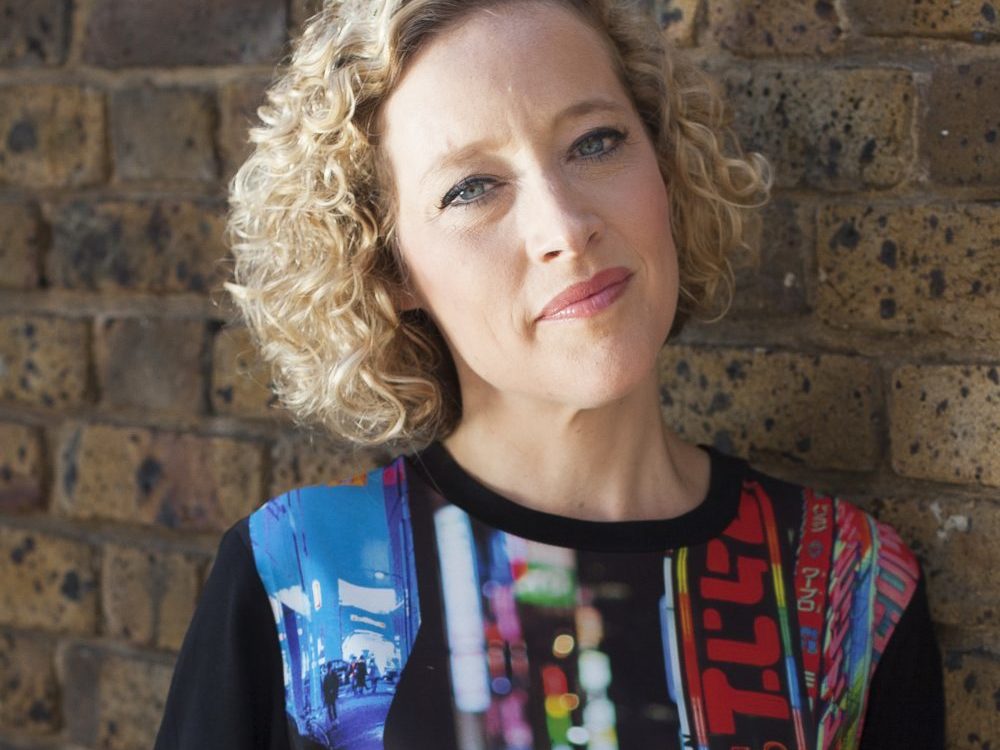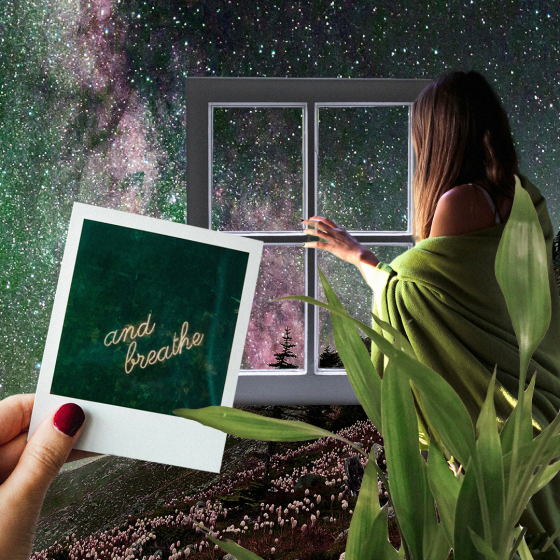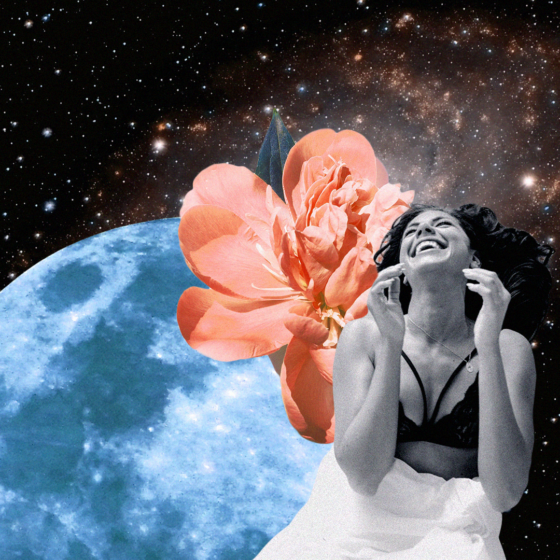The Channel 4 News host, and author of female-first history tome Bloody Brilliant Women, sits down with Jennifer Crichton to talk sexism, trolling and what we can learn from the feminists who went before us.
You have said in the past that you didn’t identify as a feminist in your early career. What was your opinion of feminism at that point?
I think my mother and other women around me were quite scornful of seventies feminism. They’d describe them as bra-burners, and I grew up in that sort of atmosphere. So when I first started work, I didn’t gravitate towards writing stories about women’s rights. I sort of felt that I didn’t want to get pigeonholed, but now I’m slightly ashamed of that, because if we weren’t going to write about women’s rights, the next bloke wasn’t going to. Perhaps that’s changing slightly now we’ve reached a tipping point.
What do you think changed your outlook?
I suppose I started to become radicalised in the world of work, when so often I would find that I was the only woman in the room. I started to think about how weird it all was. I’d thought that whole equality business would be fixed by then, and it wasn’t. And then I found out I was getting paid unequally, and I guess you get more and more angry the more often these things happen, and you want to do something about it. I think some people still would say they don’t like the word ‘feminism’ because it’s very divisive, but it depends what you want it to mean, and for me that’s equality of opportunity. We all have to get a fair crack of the whip. That’s a no brainer for me.
What struck me about the book was how similar some of the issues women faced as far back as the 1800s are to those we face today. You write about the obscenity trial of Anne Besant in the 1890s, for example, and how she lost custody of her daughter after writing about access to birth control. Given the discussions we’re having just now about abortion in both the USA and Northern Ireland, were you struck by those similarities too?
I’ve got so much to say about that. What depressed me when writing the book was how many of the battles we’re still fighting. But I suppose what gave me a glimmer of hope is that there are other women in the book, women like Sophia Jex-Blake who had to struggle to be educated as a medic, whose battles we don’t have to fight any more. We no longer have to fight, in this country at least, to be educated.
But what seems to happen throughout history is that there are big steps forward and then things seem to slip back. And I think with abortion, with Donald Trump’s election, it feels that there are hard-won rights that are being eroded. And I find it astonishing that in Northern Ireland women face amongst the most restrictive abortion rules in the world. Northern Ireland is part of the UK, so why are we not doing anything about that? And of course, the reason is political paralysis. While everybody’s time is absorbed by Brexit, issues like women’s rights get side-lined.
There’s an Online Harms White Paper which has some very good ideas in it about tackling online abuse – some of which again feels very similar to the abuse faced by the earliest female MPs in the book – but that’s not going to stand a chance of making it into law, because there are no new laws being made at the moment. So, I guess I feel inspired by the women in the book to know that we can go on fighting and we can continue winning, but only if we keep fighting even at times of difficulty.
You touch on online abuse. You received death threats in the wake of your interview with [the controversial Canadian academic] Jordan Peterson, your address was published online, and Channel 4 had to call in the police. How do you get through a period like that and resist the temptation to delete Twitter and retreat?
The thing I think is really important, and Mary Beard also talks about this in her brilliant book Women & Power, is that you can’t vacate the online space, because that’s the same as saying you won’t walk down the street any more for fear of being attacked. I was very clear that I did not want to come off Twitter. For a few weeks I put filters on so I didn’t see all the horrible stuff, but then I worried about that too, because what if someone issued a credible death threat and I didn’t see it? I am quite careful now about what I Tweet and how often I use it, and I am quite judicious about using it just to talk about stories I’ve done. I try not to give too much opinion, partly because I’m bound by impartiality laws but also because I think we’re so divided as a country now that people have very entrenched views. When you take a side, you start to invite criticism. And criticism in itself is fine, but it can quickly turn into vitriol and then threats.
What do you think can be done to tackle the prevalence of online abuse?
It seems to me a no brainer that the companies that host these platforms have got to take more responsibility for what’s on them. When I am in a period of being trolled aggressively, Twitter says just block and report them. But why should I waste my time doing that? It’s very time consuming when you’re in the middle of one of these maelstroms of abuse, and it seems to me that these clever companies that are making billions should be able to come up with an algorithm that tackles some of this abuse at source. And I’m not talking about curbing free speech. We have very strict rules at Channel 4 News in terms of what we can or cannot broadcast, whether that’s images from the battlefield or what someone said to someone else in a trial. And it seems to me that if, with our average 700,000 viewers a night, we have all of these rules, these platforms hosting videos seen by millions also need some of the same regulation. I think the tech companies actually acknowledge that to a certain degree now. They know they’ve let the genie out of the bottle, and we’ve seen Facebook saying it wants to be subject to some form of regulation. But it’s a question of how, and who manages it.
You touched on equal pay as being a catalyst for your feminism, and it’s discussed widely in the book. When the first pay disclosures were made, Channel 4 was actually worse than the BBC with a pay gap of around 20 per cent. How much responsibility do you feel, both as a broadcaster and as a mother of daughters, for taking on that fight? Does it weigh heavily?
I feel with this, you have to be vocal and you can’t let the bosses slide on it. I feel very fairly paid, I have no complaint about my salary, and I think Jon did an amazing thing in taking a pay cut [in response]. But I think what’s very easily forgotten in all of this is the women working in jobs that aren’t like mine. It’s the women working in supermarkets who are claiming to be paid less than the men are, which the supermarkets deny, that I worry about. The ones whose voices aren’t being heard. It’s not really about the visible people who are making very good money already. It’s more about taking on the fight on behalf of all women, and making sure we don’t forget those who are struggling to make ends meet. They have a much bigger problem to face than well-paid TV presenters.
On that note, there are numerous moments in the book when you touch upon the reliance of working women on the labour of other, lower paid women. How concerned should we be about the fact that today’s elite, two-income households are often still relying on lower paid women to enable them to manage their homes, jobs and families?
Of course that’s a concern, and that’s why women have been much more affected by public spending cuts and austerity than men. I think that’s what gets lost in all the heat of discussion about the gender pay gap. Illegal, unequal pay is a whole different discussion, but the fact is that not enough women are rising up the ranks to the top jobs. That’s why there’s a gender pay gap, and we have to look at why that is. Sure, some women don’t want the top jobs. Some men don’t either. But we have to give women the opportunity and culture to enable them to climb the ranks if they want to, and not get stuck doing less well-paid jobs that they’re desperate to get out of.
You quote the early Scottish Trade Unionist Mary McArthur as saying, in 1891, that “women are unorganised because they are badly paid, and poorly paid because they are unorganised”. Today, it’s often still the lowest paid women who have the least time and resources to fight the inequalities they face, but the #MeToo movement felt like the first mass mobilisation of women in my lifetime. Do you feel that’s still succeeding in creating an organised body of women?
Back when I started work, it didn’t feel like there was much of a sisterhood. There was the odd woman who had risen up the ranks and was very inspiring, but they were very much on their own. I think what is lovely now is that seems to be changing. Younger women come to me at work and I unofficially mentor them, and I think we’re all very supportive of each other, which is the only way we’re going to get real change. And I do think #MeToo made a huge difference to that. Of course, there were downsides and at times it did veer towards mob justice – you know that if there’s a serious accusation to be made, the police need to be allowed to investigate without people’s names being broadcast widely online, for example. In that sense, I can see why there were detractors. But I also think that #MeToo has been hugely empowering, and I think it has changed the culture in a way that would make men think twice now about behaving in ways that, even five or ten years ago, they could get away with.
That’s where Laura Bates’ work with Everyday Sexism has been so interesting, the fact it focuses on the sort of drip, drip of misogyny that so many of us have grown up being taught to shrug off. Do you think we’re starting to see the end of that expectation we should simply accept ‘small’ acts of sexism as humour?
I think it’s all about how you respond to the banter, because that kind of public school or office banter that puts women at the butt of jokes, rather than holding them up as a source of inspiration or great ideas, is a problem. But I also think you don’t want to rush to legislate. I’m not sure I agree with the idea of making wolf whistling illegal, for example. The police have got enough to do, dealing with serious crimes, and there’s enough rape and domestic violence happening for us to be focussing on that. But I do think we need to change that culture. Because unless we change the way women are viewed in that context, it’s hard to see how we can make serious change elsewhere.
There’s a quote at the end of the book that really stood out to me, from Elaine Showalter at the end of the nineteenth century, in which she said: “In periods of cultural insecurity, when there are fears of regression and degeneration, the longing for strict border controls around the definition of gender, as well as race, class and nationality, becomes especially intense.” I realise you have an obligation to political impartiality, but as a feminist in the era of Donald Trump, Boris Johnson and Jacob Rees-Mogg, you must have days where you despair…
I hope there are sunny uplands awaiting us all! Yeah, I mean, when the tape of Trump boasting about grabbing women by the pussy emerged, I thought his presidential bid must be doomed. And I think what I found most depressing was that it didn’t make any difference. But I think if you try to take the broad historical view, what we are seeing is a cry of pain from people who know that things are changing. The whole incel movement, for example, is a cry of pain, and I think as well as being clear that things are changing, you also have to listen to that and try to see where it is coming from.
Our young boys now are growing up fearful of where they’re going to fit in our society. Do they have enough good role models? That’s what worries me. I go into schools a lot and I’m encouraged that young girls are so confident, know what they think and are doing really well. But beside them, the boys look so lost sometimes. And I think as a feminist you have to worry about that. As I said at the beginning, I don’t see feminism as a divisive thing, I think it’s got to be a fight we’re in together. The UN has it right with the He For She campaign – we’ve got to make it about working together towards a more equal world.
Is there an issue that you regularly cover that you feel is particularly pressing in terms of needing focus in the feminist arena?
I’m constantly astonished that we’re not doing more about domestic violence. Two women a week in England and Wales are killed by their current or former partners and I think if we’re talking about gender issues at the most horrible life or death level, that seems to me to be the biggest injustice. So I think we need to be making sure that the police have both the tools and the inclination to take these matters seriously, and I think some of this comes back to the gender profile of the police force. If there are more female police officers, it makes sense they’ll win the confidence of women more readily – particularly women who, perhaps because of their abusive relationships, are not trustful of men. And I also think it is, to a certain extent, about resources and staffing, about having officers who can question the 999 calls that are dropped before being answered. I don’t want to stray into politics, but with an election potentially in the offing, police numbers have become a political football, and perhaps that might be to the advantage of women long term.
Have you come to any conclusions as to why the women you have written about have been so erased from the story of history? And do you think today’s bloody brilliant women will escape a similar fate?
I think that I came to the conclusion – and it is entirely unscientific so I am happy to be proved wrong – that because so much of history was written by men, these amazing women have kind of been undiscovered. Because I think all of us do kind of view the world in our own image. For me, it seems that must be the only explanation. Are women today being airbrushed to the same extent? I think less so. It’s definitely getting better, and I want to end on an optimistic note. I think if you look at some of the struggles that the women in the book went through, particularly around getting educated, they fought a lot of battles that we still benefit from today. Someone in the audience earlier mentioned the fact we stand on their shoulders, and I think that’s one of the reasons I wanted to write the book, to celebrate them. I feel very grateful for what those women achieved, because without them we would all of us be in a far worse position right now…
Cathy Newman’s Bloody Brilliant Women, published by William Collins, is available now at all good bookshops









